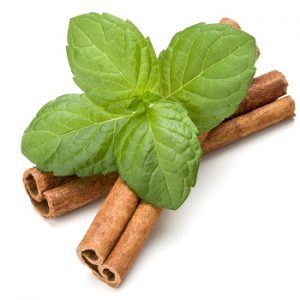
More evidence that low-calorie sweeteners are bad for your health
Studies show that artificial sweeteners can raise the risk of hypertension, metabolic syndrome, type 2 diabetes and heart disease, including stroke.

Natural Health News — Infectious colonies of bacteria called biofilms that develop on chronic wounds and medical devices can cause serious health problems and are tough to treat.
But now scientists have found a way to package antimicrobial compounds from peppermint and cinnamon in tiny capsules that can both kill biofilms and actively promote healing. The researchers say the new material, reported in the journal ACS Nano, could be used as a topical antibacterial treatment and disinfectant.
» The use of essential oils has a proven track record in killing bacteria.
» Scientists believe they can harness this medicinal effect by packaging compounds from peppermint oil and cinnamon into microcapsules, which can then be incorporated into wound dressings.
» A new study found these microcapsules were effective even against resistant bacteria.
Many bacteria clump together in sticky plaques in a way that makes them difficult to eliminate with traditional antibiotics. Doctors sometimes recommend cutting out infected tissues. This approach is costly, however, and because it’s invasive, many patients opt out of treatment altogether.
Essential oils, effective anti-microbials
Essential oils and other natural compounds have emerged recently as alternative substances that can get rid of pathogenic bacteria and have previously been shown as effective anti-microbial agents in studies for wound dressings.
“Essential oils and other natural compounds have emerged recently as alternative substances that can get rid of pathogenic bacteria, but researchers have had a hard time translating their antibacterial activity into treatments,” researchers said in a statement.
In a recent study US researchers found a way to package compounds from peppermint oil and cinnamon into microcapsules to kill bacteria and promote the growth of cells important in wound healing. The microcapsules were shown to be effective against four types of bacteria, one of which was antibiotic-resistant.
In addition to the substances’ antibacterial qualities, researchers found the combination of oils also promoted the growth of fibroblasts, a cell type important in wound healing.
Researchers said their hope was for the new material to be used in topical antibacterial treatments and disinfectants.

Please subscribe me to your newsletter mailing list. I have read the
privacy statement